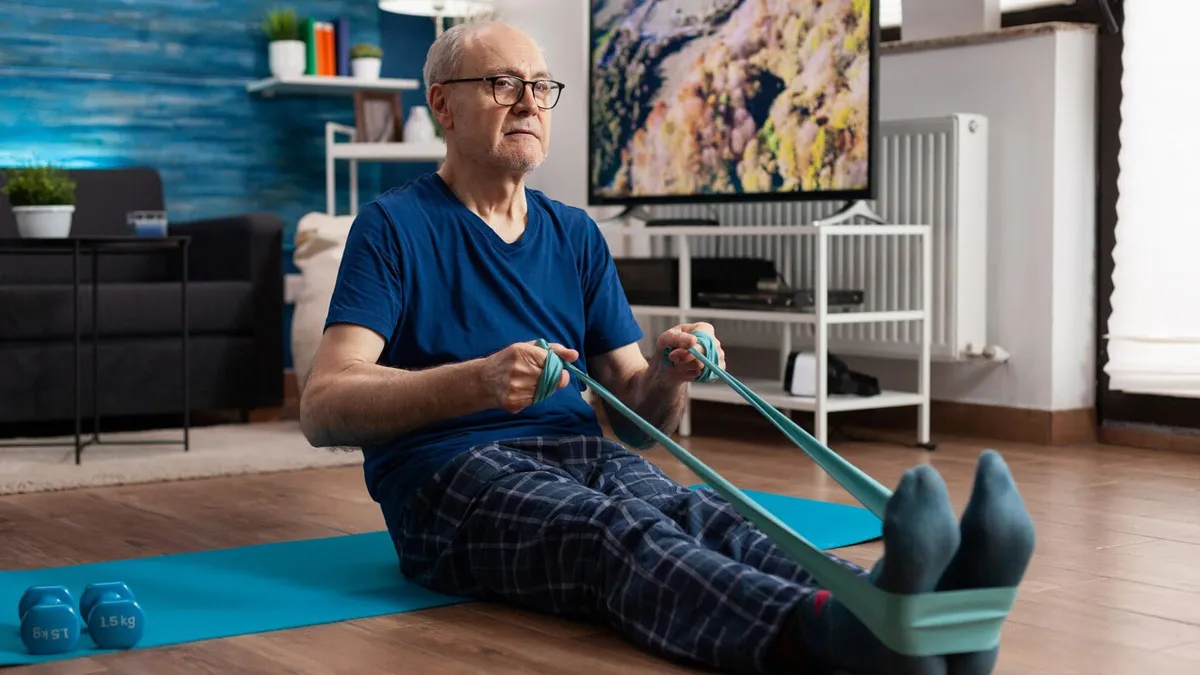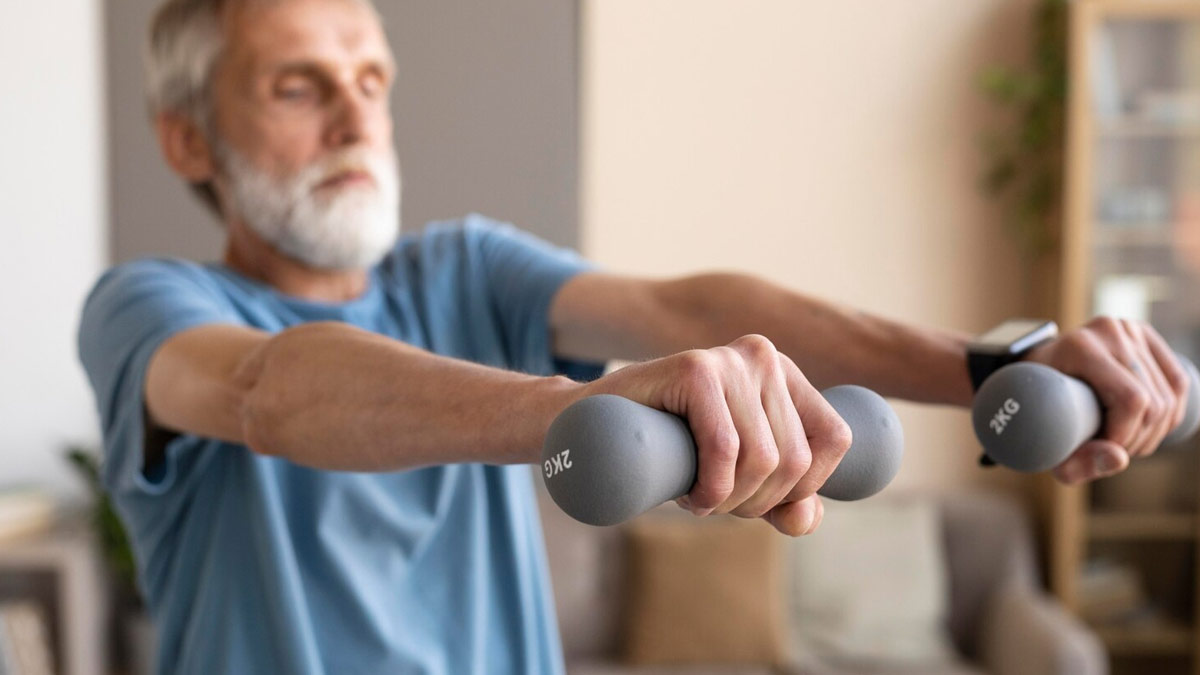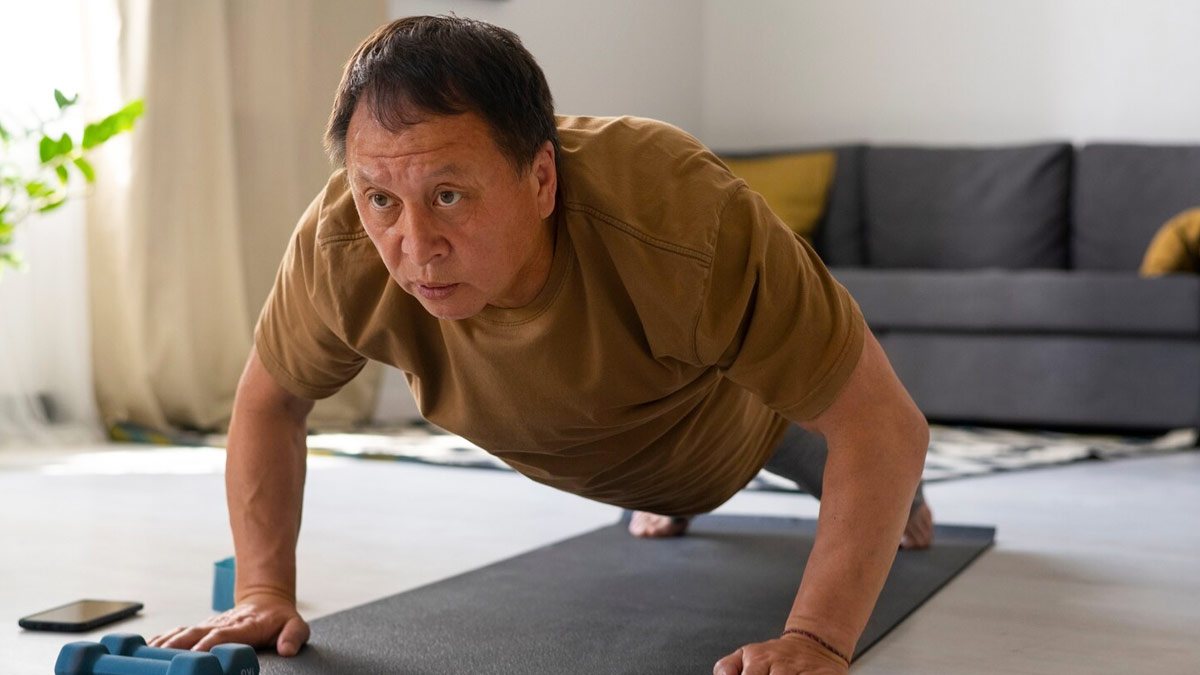
Some conditions can affect the patient’s entire lifestyle – as it can impact even their daily activities like walking or writing. Parkinson’s disease is one such condition. Living with this condition is a big challenge. What if we tell you that healthy lifestyle changes can slow down the progression of Parkinson’s disease in patients? Yes, you read that right. This World Movement Disorders Day, we are here to answer all your queries on this topic.
Table of Content:-
To get a better understanding on this topic, we reached out to Dr Neha Pandita, Consultant Neurology, Fortis Noida. Read ahead to know all about it.
Causes And Symptoms Of Parkinson's Disease
Parkinson’s disease is a condition where a certain part of your brain deteriorates. This causes more severe symptoms with time. It affects muscle control, balance and movement, and can also cause a number of other effects on your senses such as thinking ability, mental health and more.
Dr Pandita shares, “Parkinson’s disease includes the progressive death of the brain cells producing dopamine, mainly because of factors like ageing, genes, and especially environmental exposure. Symptoms include the following: tremors, rigidity, slowness of movement, balancing problems, reduced facial expression, soft speaking, and writing of smaller letters. Non-motor symptoms may also include sleep problems, constipation, depression, and changes in cognition.”
On this note, let us take a look at its symptoms in detail.
Motor-related symptoms:
- Slowed movements (bradykinesia): This symptom is described as muscle weakness. It is caused by muscle control problems, and there’s no actual loss of strength.
- Tremor: This is the rhythmic shaking of muscles, even when they are not in use. This manifests in about 80% of Parkinson’s disease cases.
- Rigidity or stiffness: Lead-pipe rigidity and cogwheel stiffness are also some of the common symptoms of Parkinson’s disease. Lead-pipe rigidity refers to the unchanging stiffness, when moving a body part. Cogwheel stiffness is when you combine tremor and lead-pipe rigidity.
- Unstable posture or walking gait: The slowed movements and stiffness in Parkinson’s disease causes a hunched over or stooped stance. This generally appears as the disease worsens.
Additional motor symptoms can include:
- Blinking less often than normal.
- Cramped or small handwriting.
- Drooling.
- Mask-like facial expression.
- Trouble swallowing (dysphagia).
- Unusually soft speaking voice (hypophonia).

Non-motor symptoms:
- Autonomic nervous system symptoms, such as orthostatic hypotension (low blood pressure when standing up), constipation and gastrointestinal problems, urinary incontinence and sexual dysfunctions.
- Depression.
- Loss of sense of smell (anosmia).
- Sleep problems.
- Trouble thinking and focusing ( dementia).
Can Lifestyle Changes Slow Down Parkinson’s Progression?
Now, let us address the main question – can lifestyle changes actually slow down the progression of Parkinson’s disease? Our expert answers this for you.
“This is not to say that lifestyle modification can halt the disease’s progression, but it may well provide symptomatic improvement through a slowing of functional decline. Regular physical activity, healthy nutrition, mental stimulation, and reduction in stress have all been associated with maintaining brain health and improving motor function. These approaches can improve symptoms, enhance resilience, and prolong independence. Though not a cure, such measures will ensure better long-term outcomes if combined with medication,” explains Dr Pandita.
On this note, the expert lists down some lifestyle hacks which are recommended for Parkinson’s patients:
- The activities consist of regular aerobics, balance, and strength exercises.
- A diet high in fiber and antioxidants.
- Staying socially active.
- Practicing stress-reducing mindfulness, yoga, or other relaxation techniques.
- Improving sleep.
- Mentally staying active.
“Such behaviors support mobility, mood, and general health and may improve the long-term quality of life,” shares Dr Pandita.
Can Exercise Stop The Progression Of Parkinson's?
We are all aware that exercise is good for everyone. But research has shown that it may be particularly good for people with Parkinson’s disease. One recent study, which was conducted last year, stated that exercise may help slow the progression of the condition. The study tracked 237 patients over a period of five years. It showed that those with early-stage Parkinson’s disease, who were more active, had better physical outcomes than the patients who were less active. Higher physical activity levels were said to be strongly associated with better functioning in activities of daily living such as cognitive processing speed, posture stability, balance, and gait.

Our expert shares her view on this. Dr Pandita explains, “Although exercise does not stop the progression of Parkinson's, there is profound evidence that supports it considerably slows the symptoms from worsening. Aerobic, strength, and balance training improve neuroplasticity, movement, and reduce fall risk. Many high-intensity exercise programs have clinically meaningful benefits. Consistency is critical, with exercise being one of the most effective non-drug therapies.”
Can Inactivity Make Parkinson's Worse?
But is the opposite also true – can inactivity worsen the symptoms of Parkinson’s disease in patients? “Yes, inactivity can worsen the symptoms of Parkinson’s disease. Limited mobility causes generalised muscle weakness, stiffness, imbalance, and increased difficulties in activities of daily living. It may even affect mood and general energy levels adversely. Regular activities keep people mobile, reduce symptoms, and maintain independence. It is, therefore, very beneficial to encourage regular movement,” concludes Dr Pandita.
According to the Parkinson’s Foundation, here are some of the recommended activities for Parkinson’s patients:
- Aerobic activity, such as walking, cycling, or swimming. You can aim for 30 minutes of these activities per day, for at least three times a week – either at a vigorous or moderate pace.
- Strength training, such as handheld weights, weight machines, or resistance bands. You can try and get 30 minutes of strength training two or three times a week. Try to space out the workouts, so that they aren’t on back-to-back days.
- Balancing, agility, and multitasking activities such as yoga, tai chi, or boxing. You can include balance exercises in your routine for at least two or three times a week and as often as seven times per week.
- Stretching activities, such as dynamic stretching or deep breathing. Try to do this at least two or three days per week; daily stretching is even better.
Also Read: End-Stage Parkinson’s Disease: A Guide To Symptoms, Challenges, And Care Options
The Final Word
Lifestyle modification cannot halt Parkinson’s disease progression; but it may well provide symptomatic improvement through a slowing of functional decline. Changes such as regular physical activity, healthy nutrition, mental stimulation, and reduction in stress – all these have been associated with maintaining brain health and improving motor function.
FAQ
What lifestyle changes are recommended for Parkinson's?
Lifestyle changes such as eating well, exercising, and reducing stress can also help with Parkinson's disease.How long does Parkinson's disease take to progress?
Parkinson's disease progression is highly variable, ranging from a few years to several decades.Can you slow the progression of Parkinson's?
Movement, especially exercises that encourage balance and reciprocal patterns is believed to slow down the progression of the disease.
How we keep this article up to date:
We work with experts and keep a close eye on the latest in health and wellness. Whenever there is a new research or helpful information, we update our articles with accurate and useful advice.
Current Version
Nov 28, 2025 15:11 IST
Published By : Shruti Das